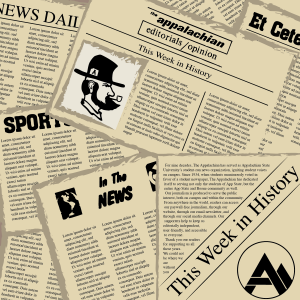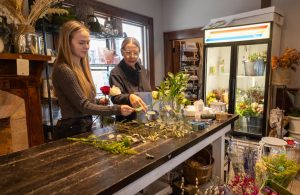Passing on a legacy: Harmonia Baroque concert showcases historical pieces
September 19, 2019
The warm, low light of Rosen Concert Hall brought tranquility and quietness on Sept. 12 in the audience. At 8 p.m. there were around 30 people in the audience who came to listen to the Harmonia Baroque group play. Five faculty members walked on stage, including Harmonia Baroque Director and Assistant Professor of Oboe Alicia Chapman, who gave an introduction before the group started to play.
The band began with Georg Phillip Telemann’s “Trio Sonata in C Minor,” which started slow and soft. They also played pieces by Giovanni Platti, Louis de Caix d’Hervelois and Antonio Vivaldi, mixing obscure and familiar pieces. All five faculty members played instruments made specifically for baroque music. Professor of Flute Nancy Schneeloch-Bingham on traverso, Assistant Professor of Oboe Alicia Chapman on hautbois, Adjunct Instructor of Alexander Technique Corinne Cassini on baroque cello, Professor of Guitar Douglas James on theorbo and Michael Bell on harpsichord.
Several audience members had their eyes closed while listening to the quintet. When the concert ended, Chapman invited everyone to come on stage to see the instruments up close and ask questions. Several students greeted Chapman with flower bouquets and congratulated her on her performance.
Chapman earned her bachelor’s and master’s in music from the Mannes College of Music and a doctorate in musical arts from the City University of New York, while also studying oboe in Cambridge. She said her group has annually played Harmonia Baroque at App State since 2001. Chapman said the group likes to try playing music from different composers each year, while also sticking to classics from Johann Bach and Telemann.
“(Baroque music has) a legacy. We need to pass on the tradition to new generations of listeners. Music is changing so much in the last decade, and it’s just part of our history and musical history,” Chapman said.
Kelsey Tyo, a junior music education major, said she came to Harmonia Baroque because she always had an interest in baroque music. As a violinist, she said she thinks authenticity is important when she plays baroque music.
(Baroque music has) a legacy. We need to pass on the tradition to new generations of listeners. Music is changing so much in the last decade, and it’s just part of our history and musical history.
“I think it’s vital that we come and appreciate music from the past, because it’s kind of how we got to where we are now,” Tyo said.
Baroque instruments, which are the older versions of modern instruments today, such as the violin, cello and trumpet, are typically heavier and sturdier, and their sound is specifically engineered for baroque style music. Baroque style music was popular in the 17th and 18th centuries, and focuses on harmony and the use of a soloist.
Cassini said her cello’s strings were distinguished from a modern instrument, because her cello gave a warm, resonant sound. Cassini said it was commonly played in “small bourgeois apartments,” but was also played for aristocracy, such as King Francis.
The Hayes School of Music hosts Harmonia Baroque annually with most of the original band members.











